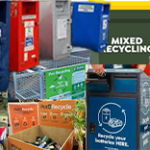
A Guide to Eating Responsibly
In a world where food choices affect not only our health but also the environment, adopting a responsible approach to eating has never been more important. From reducing carbon emissions to supporting ethical farming practices, the food we consume plays a vital role in shaping the sustainability of our planet.
In this guide, we explore what it means to eat responsibly and share practical, eco-conscious tips to help you make more sustainable food choices every day.
Understanding Responsible Eating
Responsible eating involves making food choices that minimize environmental impact while supporting personal health and long-term sustainability. It means considering where our food comes from, how it is produced, and the effects it has on the planet.
By adopting responsible eating habits, we can help conserve natural resources, reduce greenhouse gas emissions, and support food systems that prioritize ethical, sustainable, and environmentally conscious practices.
Practical Tips for Eating Responsibly
Choose Locally Sourced Foods
Opting for locally sourced foods reduces the carbon footprint associated with long-distance transportation while supporting local farmers and producers. Visit farmers’ markets, join community-supported agriculture (CSA) programs, or shop at local food cooperatives to access fresh, seasonal produce.
Eat Seasonally
Seasonal foods are typically fresher, more nutritious, and more environmentally friendly. Choosing fruits and vegetables that are in season reduces reliance on energy-intensive storage, greenhouses, and long-distance transport.
Reduce Meat Consumption
Animal agriculture contributes significantly to greenhouse gas emissions, deforestation, and water pollution. Reducing meat intake or incorporating more plant-based meals—such as participating in Meatless Mondays—can have a meaningful positive impact on the environment.
Support Sustainable Seafood
Select seafood that is responsibly sourced to help protect marine ecosystems and prevent overfishing. Look for certifications such as the Marine Stewardship Council (MSC) or Aquaculture Stewardship Council (ASC) to ensure sustainable practices.
Minimize Food Waste
Food waste contributes heavily to greenhouse gas emissions and resource loss. Reduce waste by planning meals, storing food properly, using leftovers creatively, and composting organic waste to improve soil health and reduce landfill methane emissions.
Grow Your Own Food
Growing fruits, vegetables, or herbs at home provides fresh, nutritious produce and strengthens your connection to nature. Even small home gardens or container planting can make a difference.
Cultivating a Sustainable Food Future
By embracing responsible eating habits, we can actively contribute to a more sustainable food system that supports both human health and environmental well-being. Whether it’s choosing local foods, reducing meat consumption, or cutting down on food waste, every choice matters.
Together, our everyday food decisions can help build a healthier, more resilient planet for generations to come.
Share via:


















